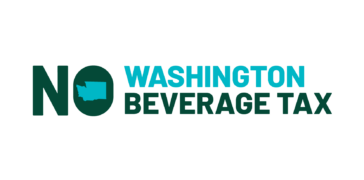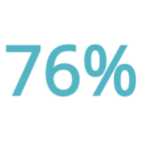Evaluation of Seattle’s Sweetened Beverage Tax
Impact of the Tax on Norms and Attitudes: The Evaluation of Seattle’s Sweetened Beverage Tax
August 2021
The University of Washington conducted a survey on Seattle’s 1.75 cent per ounce tax on sweetened beverages and found that people felt the tax was regressive and hurt neighborhood businesses in Seattle.
Key findings include:
12 Month Report: Store Audits & Child Cohort: The Evaluation of Seattle’s Sweetened Beverage Tax
A 2020 study by the University of Washington and the Seattle’s Children’s Research Institute found:
- The rate of soda consumption among children in Seattle was about the same as it was for children outside of the tax zone. The tax had no effect on the calories children in Seattle got from beverages judging from this comparison.
- Low-income children in Seattle reduced consumption of taxed beverages by 3.3 ounces per day, but low-income children outside Seattle reduced consumption by more: 3.9 ounces per day.
It’s clear: A beverage tax is not the answer.
The Impact of the Seattle Sweetened Beverage Tax on Substitution to Alcoholic Beverages
A 2022 study by researchers at the University of Illinois says there is evidence that Seattle’s beverage tax induced consumers to buy more beer. The study, published in the peer-reviewed journal PLoS ONE by University of Illinois-Chicago researchers Lisa M. Powell and Julien Lader, compared sales of beer in Seattle both before and since adoption of the soda tax with comparable sales in nearby Portland, Ore., which has no beverage tax.
“At two-years post-tax implementation, [the] volume sold of beer in Seattle relative to Portland increased by 7%,” the authors report. “The result in this study of a significant sustained increase in volume sold of beer following the implementation of the Seattle tax suggests that (sugar-sweetened beverages) and beer are substitutes.”
The authors of the study note that dangers from “excess alcohol consumption [include] higher risk of motor accidents/deaths, liver cirrhosis, sexually transmitted diseases, crime and violence, and workplace accidents.” Another risk of consuming more beer is obesity. The study is the first to examine whether a beverage tax leads to the “potential unintended consequence” of substitution to beer.





